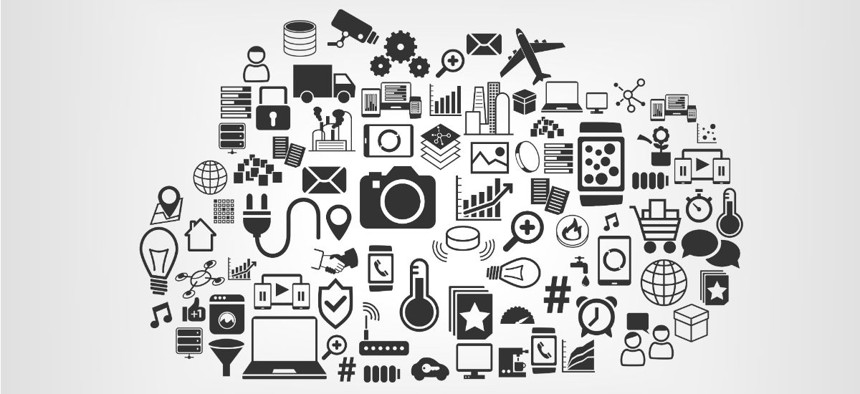
a-image/Shutterstock.com
The Internet of Things: Is Your Agency Program Ready?
The IoT brings more capability and risk.
The Internet of Things is a phenomenon that will radically reshape our world. BI Intelligence estimates the number of smart devices connected to the Internet will triple within just a few years. As sensors and other devices are placed in everything from thermostats to watches to combine harvesters, the amount and quality of data will continue to explode. Very few parts of our world and in particular our government will remain unaffected. As a government leader, you need to understand these trends and adapt your strategy accordingly. Here are few things for you to consider on the plus and minus side.
The IoT will create:
New efficiencies. The IoT is producing vast amounts of new data and that data will allow for better, cheaper and more efficient solutions. For example, smart equipment in an ambulance will be able to automatically send data about a patient, determine which hospital is best equipped to deal with the emergency, and help that hospital prepare exactly what the patient needs before she arrives. This capability will lead to better care, more lives saved and lower costs.
More transparency. With new kinds of data and the ability to make sense of that data, the IoT gives us the capability to vastly increase transparency. Data about what goes on inside programs and agencies will shed light on how decisions are made, how effective operations and projects are, and provide new ways to optimize results.
More predictive capability. As we gather data about different environments and processes, the ability to make more accurate predictions and recognize significant patterns will increase. For example, this capability could be helpful in predicting floods or structural problems with buildings and infrastructure. That will allow governments to plan for disaster response and maintenance more effectively.
The IoT also has several risks. The government has a dual role to play as a consumer and user of IoT devices and information and in its traditional role as a regulator, standards facilitator, and basic research and science promoter. Some of the frequently cited risks are:
Security. As we connect more and more things to the Internet, security becomes an enormous concern. Many of the entities involved with the IoT (public, nonprofit and commercial) have not spent enough on security. Imagine the damage a hacker could do with a self-driving car connected to a smart transportation network or to the electric grid. Connecting our infrastructure, ourselves and most things we interact with to the Internet seems inevitable, and creating redundancy, resiliency and security has to be a priority.
Privacy. Most of us are familiar with the concerns about privacy surrounding the Internet. Everything is tracked in a digital world. In fact, one of the key advantages of the IoT is its ability to track on a massive scale. How can individuals and entities protect their information in world in which the speed at which information is connected to the Internet is outstripping our ability to protect it?
Standardization. Standards are essential to realizing the full potential of IoT. Proprietary and conflicting standards limit competition and interoperability, increase costs and will make the overall IoT less effective. There are a number of groups working on standards for IoT: the Open Interconnect Consortium, the Tread Group, the Institute of Electrical and Electronics Engineers, the Industrial Internet Consortium, Apple’s HomeKit and Google Brillo. The plethora of groups involved in IoT standards and the confusion that creates is a significant risk going forward.
Governance. How data produced and consumed by the IoT are governed is one of the key questions governments, citizens, companies and other interested parties must answer. The answer will also be an international one. European countries have traditionally set more restrictive and more centralized controls on data privacy while the U.S. has pursued a more decentralized and looser approach. Asia and other parts of the world will have an increasing voice in how these issues play out as well. Government managers will need to be mindful of data governance while still harvesting the insights necessary to remain relevant.
As a government leader it is important to know the key issues and questions surrounding the IoT. Its momentum is mounting and will impact every area of government. Get educated, get ahead of the curve, and learn about how the IoT might impact your government program or agency.
(Image via a-image/Shutterstock.com)







